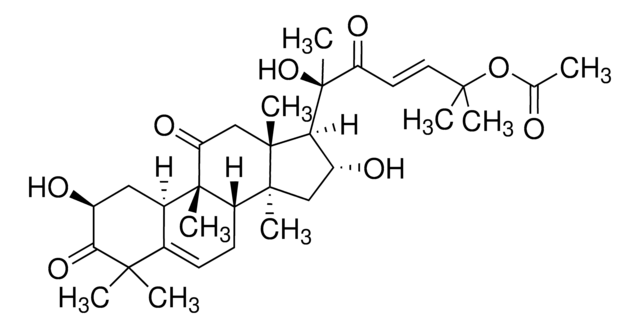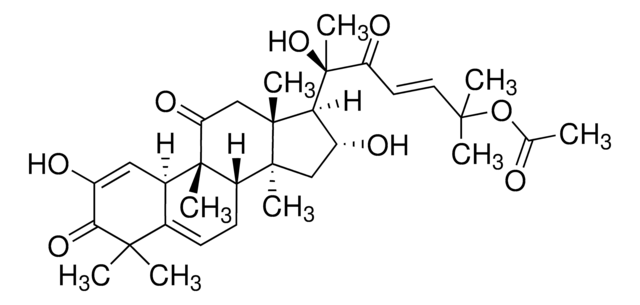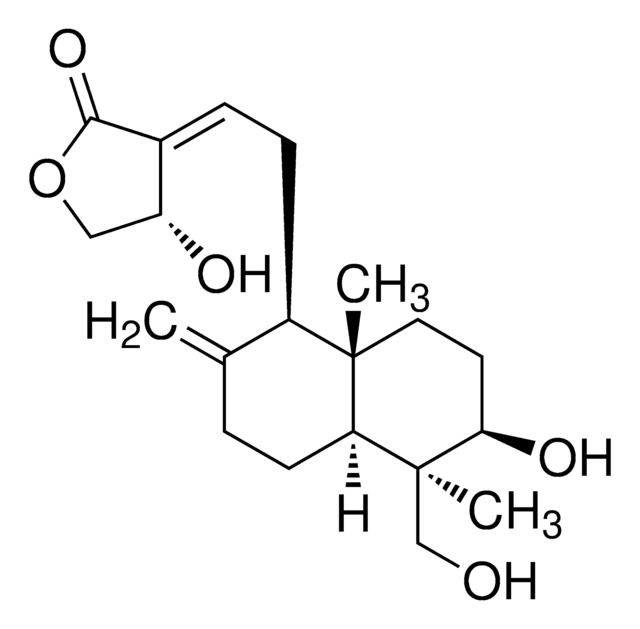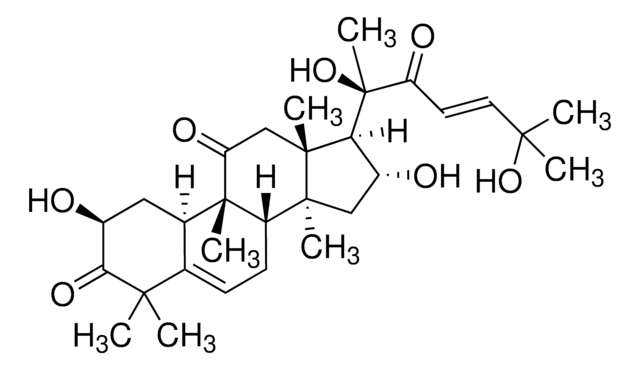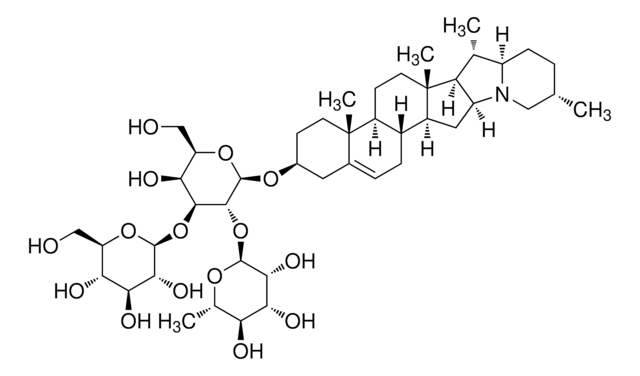C8499
Cucurbitacin B hydrate
≥97% (HPLC)
Synonym(s):
(2β,9β,10α,16α,23E)-25-(acetyloxy)-2,16,20-trihydroxy-9-methyl-19-Norlanosta-5,23-diene-3,11,22-trione
About This Item
Recommended Products
Quality Level
Assay
≥97% (HPLC)
form
powder
color
white to beige
solubility
DMSO: 10 mg/mL, clear
storage temp.
2-8°C
SMILES string
CC1(C)C([C@@H](O)C[C@]2([H])C1=CC[C@]([C@@](C[C@@H](O)[C@]3([H])[C@@](C)(O)C(/C=C/C(C)(C)OC(C)=O)=O)(C)[C@]3(C)C4)([H])[C@@]2(C)C4=O)=O
InChI
1S/C32H46O8/c1-17(33)40-27(2,3)13-12-23(36)32(9,39)25-21(35)15-29(6)22-11-10-18-19(14-20(34)26(38)28(18,4)5)31(22,8)24(37)16-30(25,29)7/h10,12-13,19-22,25,34-35,39H,11,14-16H2,1-9H3/b13-12+/t19-,20+,21-,22+,25+,29+,30-,31+,32+/m1/s1
InChI key
IXQKXEUSCPEQRD-DKRGWESNSA-N
Application
- as a signal transducer and activator of transcription 3 (stat3) inhibitor to determine its effect on the expression of human lysosomal acid lipase (hLAL) in myeloid-derived suppressor cells (MDSCs).
- as an ecdysone receptor (EcR) antagonist injection to lower the levels of 20-hydoxyecdysone (20E) signaling in butterflies.
- to determine its effect on the cell viability of pancreatic cancer cell lines.
Biochem/physiol Actions
Features and Benefits
Signal Word
Danger
Hazard Statements
Precautionary Statements
Hazard Classifications
Acute Tox. 2 Oral
Storage Class Code
6.1A - Combustible acute toxic Cat. 1 and 2 / very toxic hazardous materials
WGK
WGK 3
Flash Point(F)
Not applicable
Flash Point(C)
Not applicable
Certificates of Analysis (COA)
Search for Certificates of Analysis (COA) by entering the products Lot/Batch Number. Lot and Batch Numbers can be found on a product’s label following the words ‘Lot’ or ‘Batch’.
Already Own This Product?
Find documentation for the products that you have recently purchased in the Document Library.
Customers Also Viewed
Articles
Discover Bioactive Small Molecules for Kinase Phosphatase Biology
Our team of scientists has experience in all areas of research including Life Science, Material Science, Chemical Synthesis, Chromatography, Analytical and many others.
Contact Technical Service